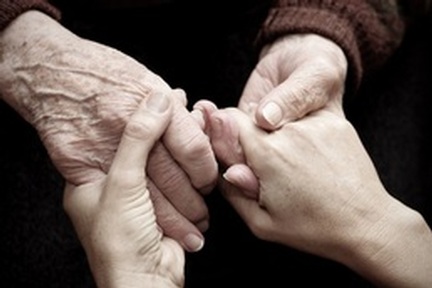Top tips for women on how to still live a good life with dementia
Women are more at risk of developing Alzheimer’s, with around half a million women living with dementia in the UK, compared to 350,000 men.

These recent statistics from Alzheimer’s Research UK showed that as well as being more likely to develop the disease, women are two and a half times more likely to be looking after someone with dementia, most often their husbands.
Dementia is a progressive condition which affects the physical, psychological and social wellbeing of an individual and their family. However with the right care and support it is possible for women to live a good life whether they have the condition or are caring for someone with dementia, according to Red & Yellow Care, a specialist dementia care provider.
Vivien Ziwocha, head of Care at Red & Yellow Care shares her top tips on how to live a good life with dementia:
1. If you are worried about memory problems or dementia, get an assessment. It is crucial to seek a timely diagnosis so that a care plan can be put in place, health needs can be monitored and plans can be made for the future.
2. Do not be afraid to seek support. There are specialist dementia nurses who assess the person with dementia’s physical and psychological health to prevent crisis and domiciliary care workers and day care centres to help those caring for loved ones with dementia get some respite.
3. Always be mindful of your physical health. It is important to prevent unnecessary illness or infection because this can lead to a rapid decline in health for a person with dementia. As a carer, this is just as important and eating healthy can help maintain your endurance and optimism!
4. Be adaptable. In my experience a big stress for women who are caring for loved ones is their often, sudden change in interests and even pallet as the condition progresses. Consider trying different foods for dinner or introducing a new topic of conversation if they aren’t as engaged as they normally are.
5. You can still be socially active and live well with dementia. For both the person with dementia and the care worker, social engagement is crucial so embrace occasions to meet with friends and family.
6. One size does not fit all. Dementia affects every person differently and so treatment should be tailored to the individuals specific needs. As a carer, you are often closer to the person with dementia so be sure to explain to healthcare professionals what is usual or unusual behaviour to ensure their health needs can be addressed quickly.
For more information about dementia go to Red & Yellow Care’s website via http://redandyellowcare.com/.
Latest News
 29-Jul-24
Dementia Bus gives carehome.co.uk staff insight into life with dementia
29-Jul-24
Dementia Bus gives carehome.co.uk staff insight into life with dementia
 01-Mar-24
Find out the top care homes in 2024
01-Mar-24
Find out the top care homes in 2024
 21-Mar-23
UK's top care homes in 2023 revealed
21-Mar-23
UK's top care homes in 2023 revealed
 03-Jan-23
carehome.co.uk launches free care helpline
03-Jan-23
carehome.co.uk launches free care helpline
 13-Dec-22
5 mins with Emily Whitehurst, chief operating officer for Constantia Healthcare
13-Dec-22
5 mins with Emily Whitehurst, chief operating officer for Constantia Healthcare